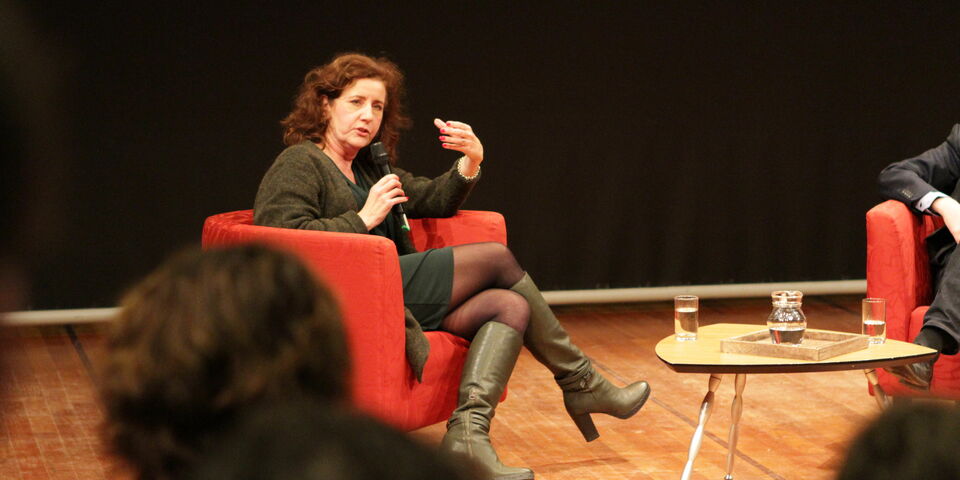Education minister: ‘What’s on TU/e students minds?’
What do you think of the fact that the New Year's speech at TU/e was given in Dutch? How will a minister view education in the year 2030, and what is the role of entrepreneurship at a university? In a discussion Monday evening with Education Minister Ingrid van Engelshoven students were able to ask her whatever they wanted to. She also had a question of her own: “I'm keen to hear how English-taught education is going here.”
At the invitation of parliamentary party D66, Ingrid van Engelshoven paid a visit to TU/e on Monday evening. This was her first visit in a long time and the venue was the Blauwe Zaal. “My brother studied electrical engineering here and now he's working in an international environment. I think it's useful that these days you can get some language experience during your study program, through being taught in English, for example. But of course it has it to be done well. Tell me, how is it here? I'm curious.”
CHEOPS chairperson Joris van der Zwet is one of the Architecture, Building and Planning students among the first intake to receive lectures entirely in English, in 2015. He answers immediately: “The quality could certainly be better. I've noticed that now and then my lecturers make up English terms on the spot. It's not that they aren't keen, but they are already under huge work pressure.” Someone else says that he is pleased with his six years of English-taught education, “but my Dutch has really deteriorated”.
Sometimes study programs choose to teach in English only to attract extra students, Van Engelshoven fears. “I don't want it to provide the basis for competition, but to genuinely add value to education.”
The minister, who has been in post for three months, comes across to the students as being interested. They haven't turned out in any great numbers, but those who are here are joining in the discussion. Afterwards Mechanical Engineering student Sef Achten says that he thought Van Engelshoven was well prepared. “Because the first topic was internationalization, and that has a direct impact on the number of places for students and the work pressure put on employees, the conversation soon turned to finance and the distribution of funding. And there she displayed a good knowledge of her portfolio.”
Not promising the earth
Finding enough money for everything that needs it is something the minister sees as a hugely complex puzzle. She doesn't want to promise the earth, and doesn't currently have any readymade solutions for the cap on student numbers, selection at the point of entry, and so on. “In three years' time I hope to have a funding model that is more up to date.”
In the meantime she hopes it will remain possible for her to get out and about nationwide on Mondays in order to talk to students and find out whether they are thinking about the right issues. For the long-term future, about which Yoram Meijaard of student faction Groep-één explicitly asked her, referring to the education vision 2030 that TU/e is currently preparing, Van Engelshoven has three wishes. “More cooperation at the European level, working with open educational resources, and working at the international level with open data and open science. Will you people make sure these things become embedded in this university's vision of the future?”
Yoram Meijaard seized the chance to encourage all those present to attend the University Council next Monday. “The language policy here at TU/e will be on the agenda.”


Discussion